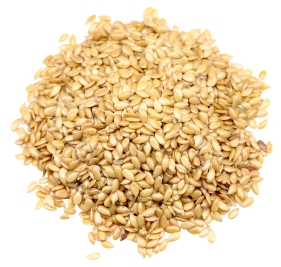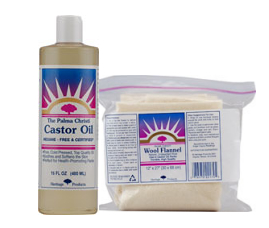What Are Essential Fatty Acids?
For years it has been driven into our heads that fats are bad. We must eliminate fats from our diet to lose weight, prevent heart disease and more. However, what many people seem to fail and realize is that there are some fats that are actually good for us, and are in fact essential to our good health.
For optimum health eat essential fatty acids every day.
|
Essential fatty acids are three of these good fats. There are three different types of unsaturated fatty acids; Omega-3, Omega-6 and Omega-9. Omega-3 and Omega-6 fatty acids are essential to the body. Omega-9 acids are not “essential” for human health, because unlike Omega-3 and Omega-6 fatty acids which cannot be manufactured by the body, Omega-9 is naturally occurring because the body does contain the necessary enzymes for synthesis of the fatty acid to take place.
However, there are some cases where the body is unable to produce adequate amounts of Omega-9 on it’s own, so in this case a supplement is definitely beneficial. Since Omega-3 and Omega-6 fatty acids are unable to be produced by the body, we must gain it by eating foods that are rich in these unsaturated fats or use a dietary supplement to get the necessary amounts in our body.
Best Sources Of 3-6-9 Essential Fatty Acids
The three best sources of essential fatty acids that will provide the different levels of unsaturated fats are borage oil, flax oil and fish oil. As each of the types of fatty acids are processed differently by the body and work in different ways, it is important to ensure that you are getting the proper intake of each.

Flax oil and fish oil are rich in Omega-3 fatty acids.
Omega-3 acids have been shown to help fertility by helping to regulate hormones in the body, increase cervical mucous, promote ovulation and overall improve the quality of the uterus by increasing the blood flow to the reproductive organs.Borage oil is rich in Omega-6 fats,
which can assist fertility by improving reproductive cell structure, decrease risk of inflammation and improve the condition of organs in the body. Omega-3 fats also contain two acids that are crucial to good health: DHA and EPA. These two acids have been shown to help many forms of disease. Low levels of DHA have been linked to depression and other mental health issues. During pregnancy, a lack of DHA may be associated with premature birth, low birth weight and hyperactivity in children.
Omega-9 monounsaturated fats are found in various food sources with the most amount of the nutrient found in olive oil. Other sources of Omega-9 fatty acids include fresh seeds and nuts, avocado and sunflower oil.
It is important to ensure that your daily intake of nutrients includes each of these essential fatty acids, particularly paying attention to intake of Omega-3 and 6. Dietary supplements can be found that contain 3-6-9 fatty acids combined or you can take them separately or add foods to your diet that are rich in these fats. For best results, look for supplements that use fish and flax oil for the Omega-3’s, and borage oil as a source of Omega-6.
By eating two servings of fish per week, you can increase your levels of omega-3s in your diet. With the concern of mercury levels found in fish today and the high cost of omega 3 dense fish such as wild Alaskan salmon averaging $20lb, in many cases taking a supplement is a safer and more cost effective way to go.
Why Omega-3 EFA Are Essential For Your Fertility
Essential fatty acids help to:
Regulate hormones
Increase the blood flow to the uterus
Reduce sensitivity to the hormone prolactin, which can suppress ovulation.
increases egg white cervical mucus, which is needed to help the sperm reach the egg.
Helps your cycle to become normalized.


 Flax oil and fish oil are rich in Omega-3 fatty acids. Omega-3 acids have been shown to help fertility by helping to regulate hormones in the body, increase cervical mucous, promote ovulation and overall improve the quality of the uterus by increasing the blood flow to the reproductive organs.Borage oil is rich in Omega-6 fats, which can assist fertility by improving reproductive cell structure, decrease risk of inflammation and improve the condition of organs in the body. Omega-3 fats also contain two acids that are crucial to good health: DHA and EPA. These two acids have been shown to help many forms of disease. Low levels of DHA have been linked to depression and other mental health issues. During pregnancy, a lack of DHA may be associated with premature birth, low birth weight and hyperactivity in children.
Flax oil and fish oil are rich in Omega-3 fatty acids. Omega-3 acids have been shown to help fertility by helping to regulate hormones in the body, increase cervical mucous, promote ovulation and overall improve the quality of the uterus by increasing the blood flow to the reproductive organs.Borage oil is rich in Omega-6 fats, which can assist fertility by improving reproductive cell structure, decrease risk of inflammation and improve the condition of organs in the body. Omega-3 fats also contain two acids that are crucial to good health: DHA and EPA. These two acids have been shown to help many forms of disease. Low levels of DHA have been linked to depression and other mental health issues. During pregnancy, a lack of DHA may be associated with premature birth, low birth weight and hyperactivity in children.
